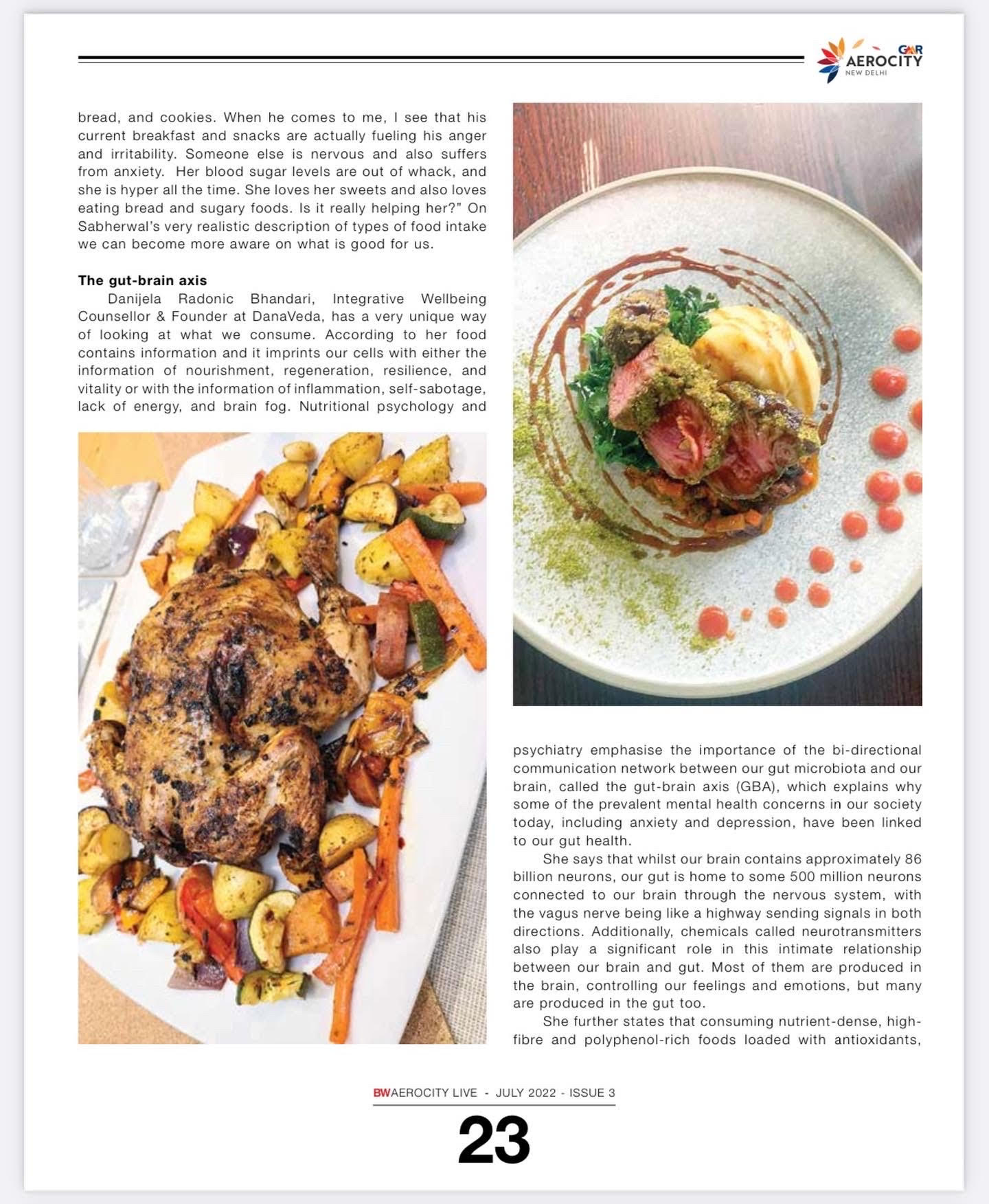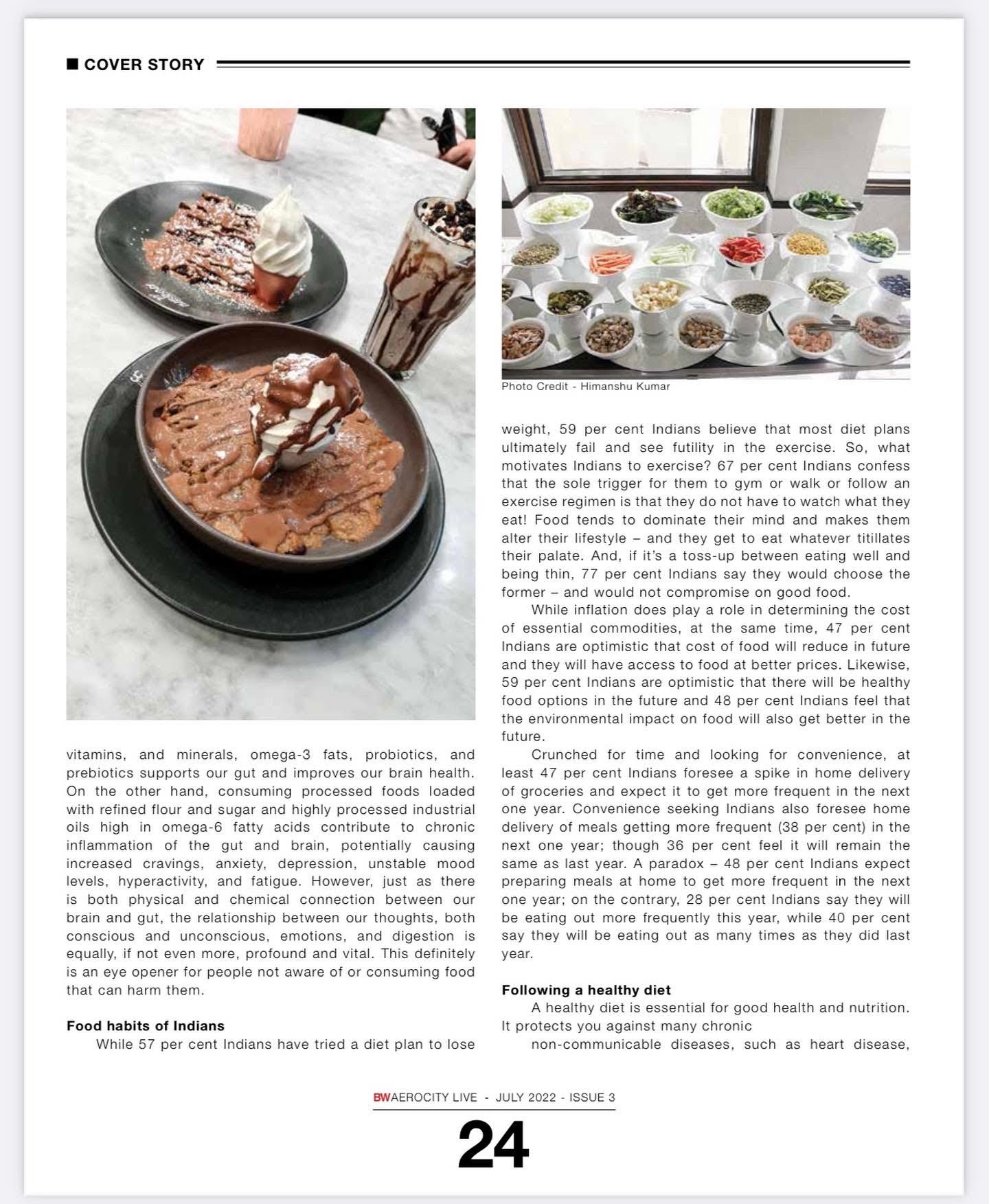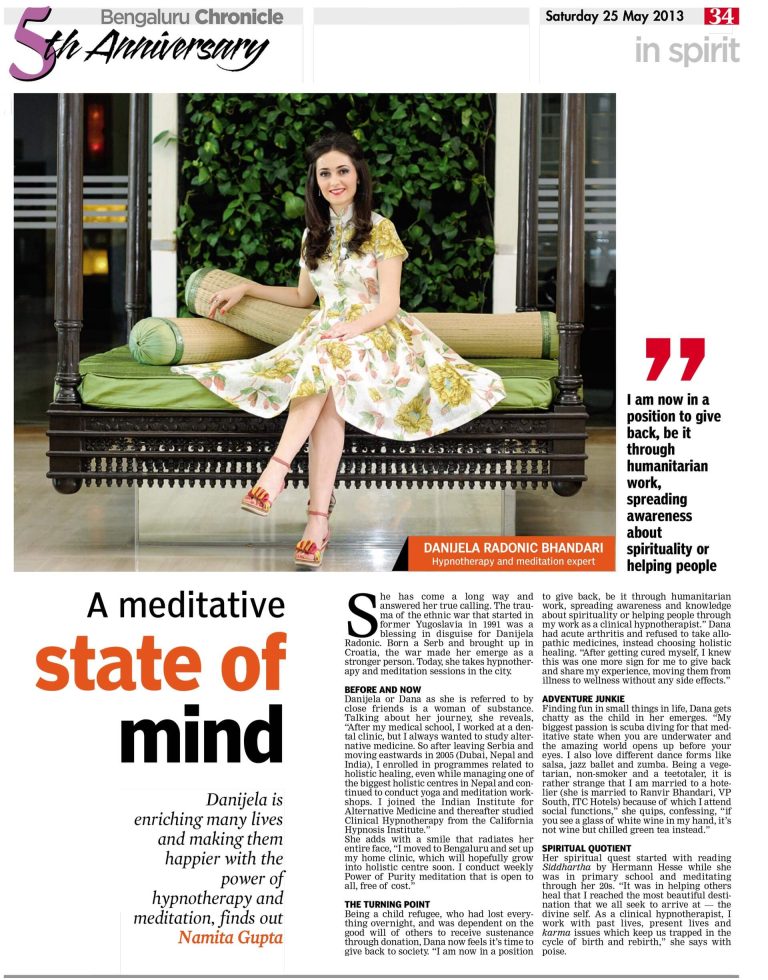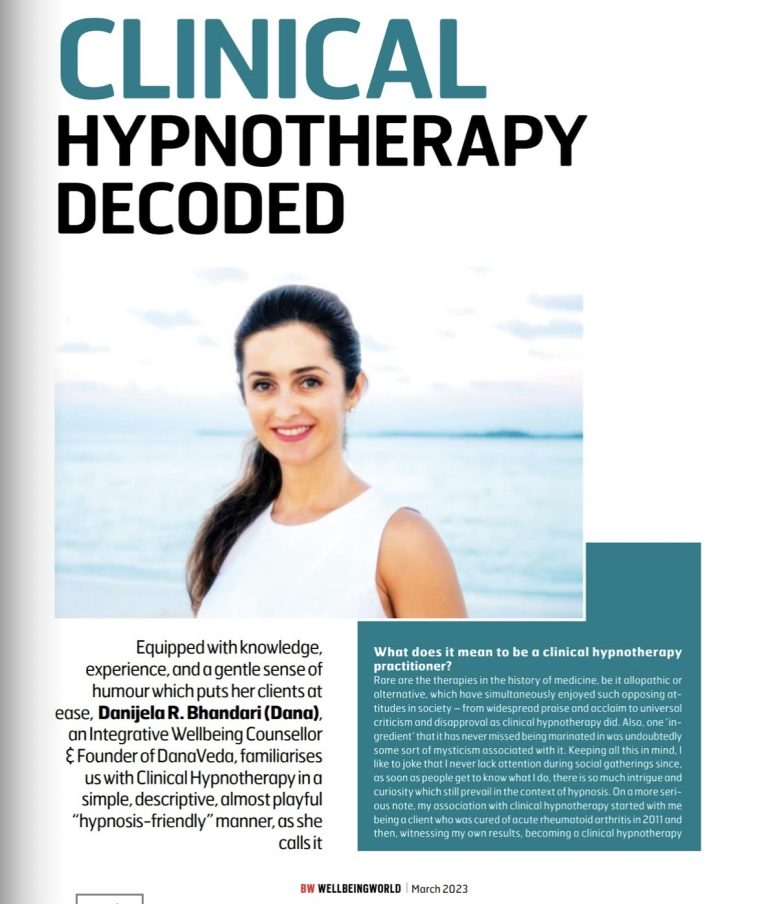You are what you eat
“It is not only the food we digest, but also our thoughts, emotions, beliefs, and patterns which, when systematically processed, nourish us, and support our ability to metabolise life experiences”
Danijela Radonic Bhandari

Food contains information and it imprints our cells with either the information of nourishment, regeneration, resilience, and vitality or with the information of inflammation, self-sabotage, lack of energy, and brain fog. Nutritional psychology and psychiatry emphasise the importance of the bi-directional communication network between our gut microbiota and our brain, called the gut-brain axis (GBA), which explains why some of the prevalent mental health concerns in our society today, including anxiety and depression, have been linked to our gut health.
Whilst our brain contains approximately 86 billion neurons, our gut is home to some 500 million neurons connected to our brain through the nervous system, with the vagus nerve being like a highway sending signals in both directions. Additionally, chemicals called neurotransmitters also play a significant role in this intimate relationship between our brain and gut. Most of them are produced in the brain, controlling our feelings and emotions, but many are produced in the gut, too.
Therefore, consuming nutrient-dense, high-fibre and polyphenol-rich foods loaded with antioxidants, vitamins, minerals, omega-3 fats, probiotics, and prebiotics supports our gut and improves our brain health. On the other hand, consuming processed foods loaded with refined flour and sugar and highly processed industrial oils high in omega-6 fatty acids contribute to chronic inflammation of the gut and brain, potentially causing increased cravings, anxiety, depression, unstable mood levels, hyperactivity, and fatigue.


Read more: Aerocity, July 2022, Issue #3





